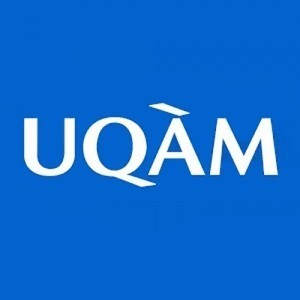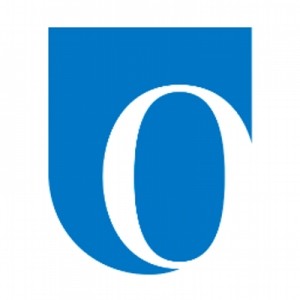Photos of university / #uqam
Sexology at the University of Quebec in Montreal offers an interdisciplinary and comprehensive academic program dedicated to the scientific study of human sexuality. This program aims to equip students with a deep understanding of sexual behaviors, identities, and health, integrating perspectives from psychology, sociology, biology, medicine, and cultural studies. Through rigorous coursework and practical training, students explore the complex factors that influence sexual development, relationships, and well-being across diverse populations and cultural contexts. The program emphasizes evidence-based approaches to sexual health promotion, prevention, and intervention strategies, preparing graduates for careers in clinical practice, research, education, and advocacy. Students will delve into topics such as sexual orientation and identity, sexual dysfunctions, reproductive health, gender studies, and ethical issues related to sexuality. The program also encourages critical analysis of societal attitudes, myths, and biases surrounding sexuality, fostering an inclusive and respectful understanding of human diversity. With a combination of theoretical instruction and practical experiences, including internships and research projects, students develop the skills necessary to address complex sexual health issues in various settings, such as clinics, community organizations, and educational institutions. The University of Quebec in Montreal's Sexology program is designed for individuals passionate about improving sexual health and promoting healthy, respectful, and fulfilling sexual lives. Graduates leave equipped with the knowledge, skills, and ethical outlook required to contribute effectively to sexual health initiatives and to serve diverse populations with sensitivity and professionalism.
Program Content: The Sexology program at the University of Quebec in Montreal offers a comprehensive and multidisciplinary approach to understanding human sexuality. The curriculum is designed to provide students with both theoretical knowledge and practical skills in the field of sexology, integrating perspectives from psychology, sociology, medicine, and communication. Throughout the program, students explore a wide range of topics including sexual development, sexual identities, gender roles, sexual health, and the cultural aspects of sexuality. The curriculum emphasizes evidence-based practices and encourages critical thinking about sexual behaviors, attitudes, and societal norms.
Students will delve into human sexuality from a biological, psychological, and social perspective, gaining insights into sexual dysfunctions, therapy techniques, and counseling methods. Special focus is given to ethical considerations, confidentiality, and cultural diversity in sexual health practices. Practical training forms an integral part of the program, with opportunities to engage in internships, workshops, and supervised clinical experiences designed to prepare students for professional roles. Graduates of the program are equipped to work in various settings such as healthcare, education, therapy, research, and community services.
The program also emphasizes research methodology and the development of academic writing skills to contribute actively to the advancement of knowledge in sexology. By fostering a supportive learning environment, the university ensures that students develop critical, empathetic, and ethical competencies essential for promoting healthy sexual development and well-being. Overall, this program aims to prepare future professionals to address diverse sexual health issues with sensitivity, professionalism, and scientific rigor.
The Sexology program at the University of Quebec in Montreal is designed to provide students with a comprehensive understanding of human sexuality from multiple perspectives, including psychological, biological, social, and cultural dimensions. The program typically requires students to complete a series of core courses that cover fundamental topics such as human sexuality theories, sexual health, sexual dysfunctions, gender studies, sexual orientation, and the sociocultural aspects of sexuality. Additionally, students are often encouraged or required to participate in practical training or internships that allow for applied learning in clinical or community settings.
Prerequisites for admission generally include a Bachelor's degree in a related field such as psychology, sociology, anthropology, or health sciences. Applicants may need to submit transcripts, a statement of interest, and letters of recommendation. The program may also include specific language proficiency requirements, particularly in French and English, given the university's bilingual environment. Enrollment might be contingent upon an interview or a written assessment to evaluate the applicant's motivation and suitability for working in the field of sexology.
Completing the program often involves earning a specified number of credits through coursework, participation in seminars, research projects, and a final thesis or capstone project. The curriculum emphasizes both theoretical knowledge and practical skills, preparing graduates for careers in counseling, education, research, or health services related to sexuality. To ensure the quality of education and adherence to academic standards, students are typically required to attend lectures, actively participate in discussions, and complete assessments as outlined in the course syllabi.
The program's requirements aim to foster critical thinking, ethical understanding, and cultural sensitivity, essential qualities in the practice of sexology. Graduates of the program may pursue certification or licensing depending on regional regulations and the specific professional path they intend to follow. Overall, the program is structured to facilitate academic growth, professional development, and a thorough understanding of human sexuality, equipping students to contribute positively to sexual health and education initiatives within diverse communities.
The University of Quebec in Montreal offers various financing options for students enrolled in the Sexology program. Students can take advantage of federal and provincial financial aid programs, including Canada Student Grants and Loans, which provide financial support based on demonstrated need. The Quebec government offers specific bursaries and scholarships for post-secondary students, aimed at reducing the financial burden associated with higher education. Additionally, the university provides its own financial assistance programs, including merit-based scholarships and bursaries awarded to outstanding students, as well as emergency aid programs to assist students facing unforeseen financial difficulties. Students may also explore external funding opportunities such as private scholarships and sponsorships from professional organizations related to health and social sciences. Part-time work opportunities are available on campus and within the university's network, allowing students to earn income while studying. The university has partnerships with various organizations that may facilitate internships or cooperative education placements, which sometimes come with stipends or financial incentives. For international students, there are specific scholarships and grants aimed at supporting their studies in Quebec, along with information on work permits that allow part-time employment. Financial planning resources are also accessible through the university's financial aid office, assisting students with budgeting, understanding loan repayment options, and applying for various support programs. Overall, the University of Quebec in Montreal provides a comprehensive set of financing options designed to make the study of sexology accessible to a diverse student body, emphasizing affordability and support for academic success.
Sexology at the University of Quebec in Montreal offers a comprehensive exploration of human sexuality, covering biological, psychological, social, and cultural dimensions. The program aims to provide students with an in-depth understanding of sexual development, behaviors, and health issues, preparing them for careers in education, counseling, healthcare, and research. The curriculum includes courses on sexual health, sexual dysfunctions, gender identity, sexual rights, and ethical considerations in the field. Students also examine various issues related to sexuality across different populations and cultural contexts to promote a holistic and inclusive perspective. The program emphasizes both theoretical knowledge and practical skills, enabling students to apply concepts effectively in real-world settings. Furthermore, the program collaborates with healthcare providers, community organizations, and research institutions to give students valuable experiential learning opportunities. Graduates of the sexology program gain the competencies necessary for working in diverse environments such as clinics, educational institutions, and community services, contributing to the promotion of sexual health and well-being. The program's structure includes lectures, seminars, workshops, and research projects facilitated by experienced faculty members specializing in various aspects of sexuality. Students are encouraged to engage critically with current research and ethical debates to develop nuanced perspectives. Upon completion, graduates can pursue further specialization or entry into professional roles that require expertise in sexuality, health, and human development. The university maintains a commitment to diversity and inclusion, ensuring that the program prepares students to support and advocate for all individuals, regardless of their background or identity.


